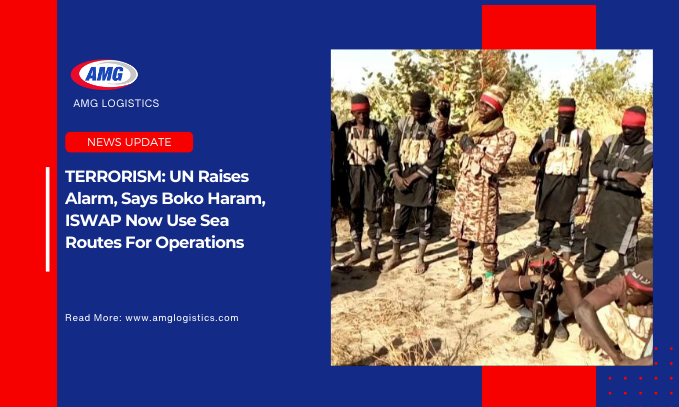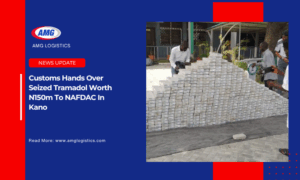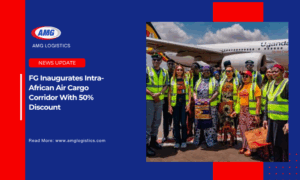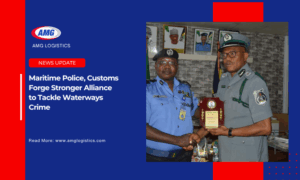In a startling revelation that could redefine the security dynamics of the Gulf of Guinea, the United Nations Office of Counter-Terrorism (UNOCT) has confirmed that terrorist groups including Boko Haram and the Islamic State in West Africa Province (ISWAP) are actively exploiting maritime routes for their operations — including the movement of arms, personnel, and illicit financing.
This disclosure was made during the opening session of a high-level Workshop on Maritime Security in the Context of Counter-Terrorism, hosted in Lagos last week and co-organized by UNOCT and the Nigeria Immigration Service, with funding support from the Italian Ministry of Foreign Affairs
Rocco Messina, Chief of the Countering Terrorist Travel Section at UNOCT, delivered the blunt warning, noting that the Gulf of Guinea — already infamous as a global piracy hotspot is witnessing a dangerous evolution of threats, where terrorism, piracy, oil theft, and transnational organized crime are becoming alarmingly intertwined.
“Terrorists are now using the sea for mobility, financing, and logistics. The porous nature of our maritime borders and the limited state presence at sea make the coastline a soft target,” Messina declared.
According to the UN, extremist groups have already demonstrated “the capability and intent to project their reach toward coastal zones and offshore infrastructure.” These developments, Messina said, are being discussed simultaneously at the United Nations Security Council in New York, which is deliberating on growing threats to global maritime security.
The workshop further highlighted that ransom payments from maritime hijackings, oil trafficking, and arms smuggling are increasingly becoming sources of terrorist financing, while weak enforcement at sea and poor coordination among regional states continue to embolden these actors.
“The nexus between terrorism and organized maritime crime is not just a theoretical concern, it is a reality playing out along this coastline,” Messina stressed.
Analysts say the implications of this shift could be catastrophic, especially for Nigeria, whose multi-billion-dollar offshore oil assets and coastal communities are now potentially within the operational reach of terrorists.
The UN is calling for a complete overhaul of existing counter-terrorism frameworks to include robust maritime components — including surveillance, interdiction, and stronger legal enforcement; warning that land-based efforts alone are now inadequate.
Messina also pointed to the inadequacies of current regional mechanisms and urged for deeper coordination among nations bordering the Gulf of Guinea. He cited the Yaoundé Code of Conduct, ECOWAS Maritime Strategy, and the Abuja Declaration as vital frameworks that must be revived and implemented with urgency.
“No single country can address these threats alone. Regional cooperation is not a luxury, it is a necessity,” he said.
In a move to respond to these new dynamics, the UNOCT announced it will update its Compendium on Border Security and Management in the Context of Counter-Terrorism, which will now reflect maritime risks in West and Central Africa.
In addition to this evolving threat, Nigeria’s Comptroller-General of Customs, Adewale Adeniyi, warned that beyond ships and shorelines, terrorists are now leveraging gaps in financial systems to mask and mobilize illicit funds.
“All the terrorists operating along our shores are driven by narcotics,” Adeniyi said. “There is an element of drugs embedded in their operations. But more crucially, they exploit gaps in our financial systems to turn illegal resources into clean money to fund their networks through mining, kidnapping, human trafficking and more.”
He stressed the need for security agencies to go beyond traditional counter-terrorism frameworks and confront terrorism financing head-on.
“We must understand how they use the financial system to fund their activities. Terrorism financing must be part of this conversation,” he emphasized.
The Customs boss, referencing experiences from the World Customs Organization (WCO), called for dynamic, coordinated, and intelligence-driven responses across nations and agencies. He commended Nigeria’s Minister of Interior for leading sweeping reforms in border control and digital passport processing, suggesting that a similar approach must now be taken into the wider Gulf of Guinea.
Rocco Messina reinforced the urgent need for a regional and multi-agency response, noting that “traditional land-based counter-terrorism efforts are no longer sufficient. The sea must be treated as an equally vital operational theatre.”
He pointed to UN Security Council Resolution 2634, which directly links maritime insecurity with global terrorism, emphasizing the need for adherence to legal frameworks and cross-border cooperation. The resolution acknowledges the growing risk of terrorists using new technologies and maritime corridors to bypass conventional defenses.





